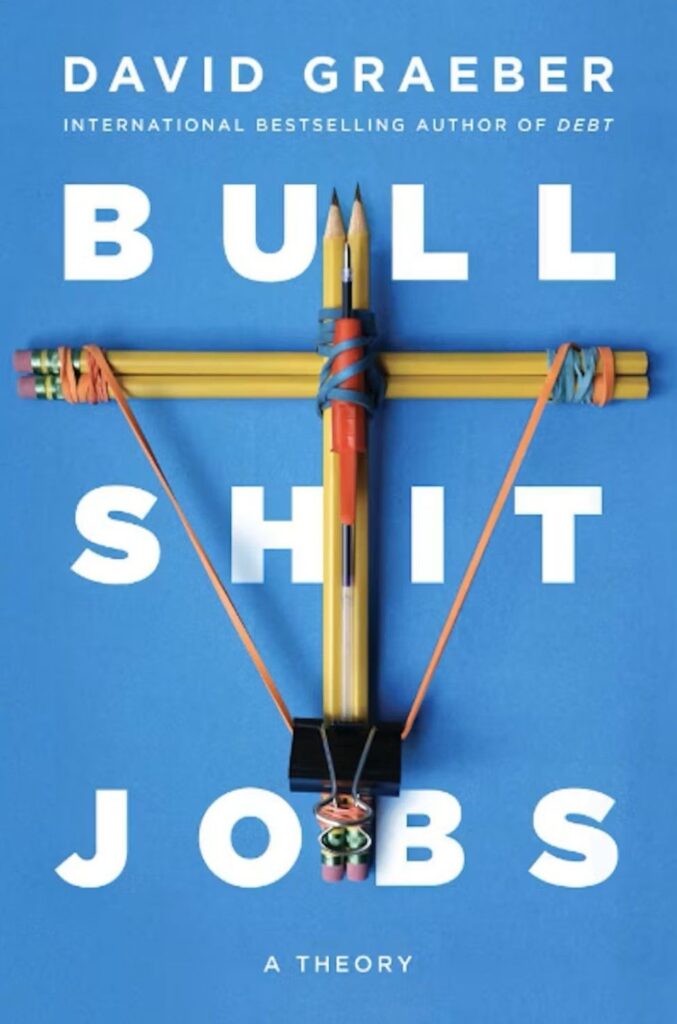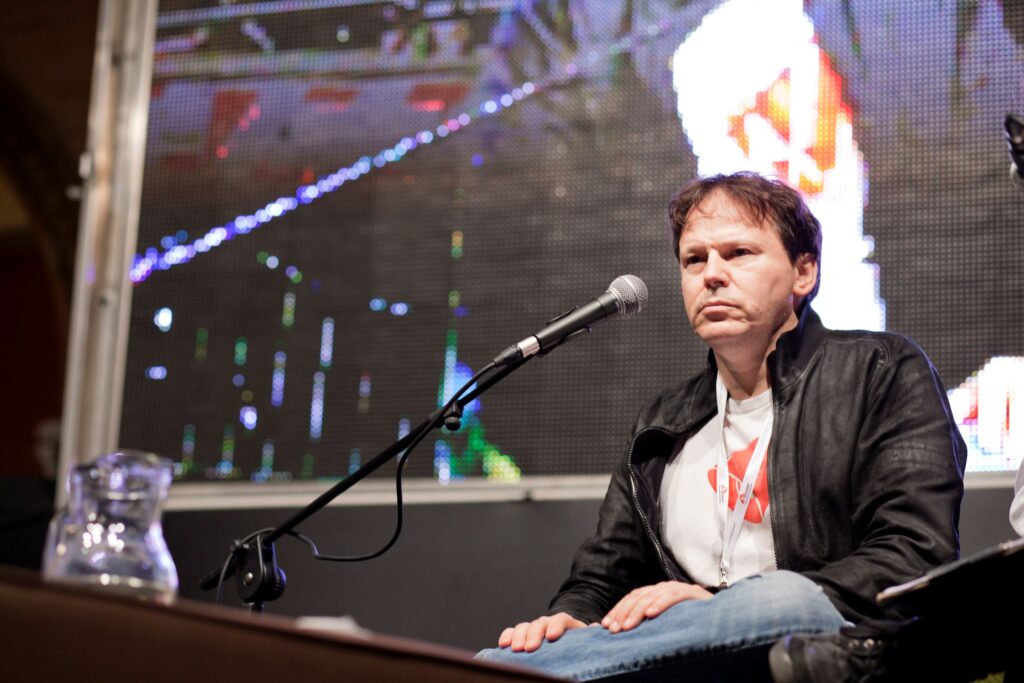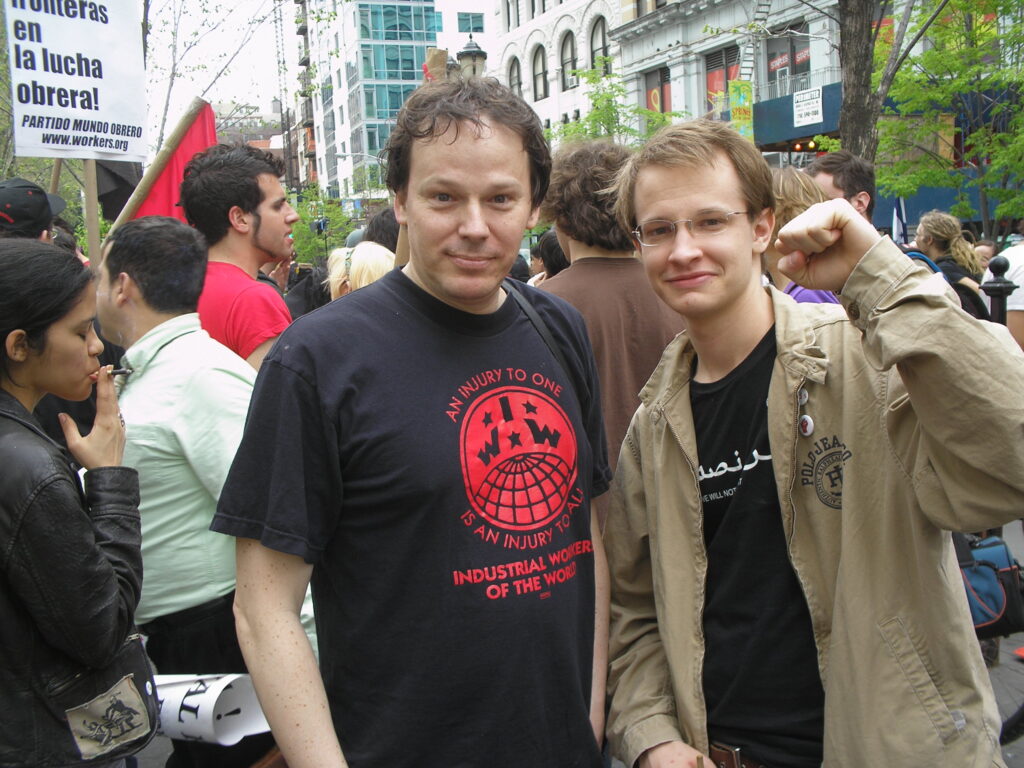Revisiting the Spiritual Violence of BS Jobs

This article was originally published at The Conversation and has been republished under Creative Commons.
The late David Graeber was an American professor of anthropology at the London School of Economics. His best-known writings challenged views in liberal economics about the origins of money, attempting to reconceive the historical relationship between debt and social institutions. He was also known for his political activism, notably as one of the original organizers of the Occupy Wall Street movement.
In 2013, Graeber wrote an article for the obscure left-wing magazine STRIKE! titled “On the Phenomenon of Bullshit Jobs.” He had no inkling it was about to cause something of a minor sensation.
The response from readers was unlike any he had experienced, prompting him to expand his ideas into a book, Bullshit Jobs: A Theory, first published in 2018.
A “bullshit job,” according to Graeber, is a job where even the person doing it secretly believes the job shouldn’t exist. But part of their condition of employment is to pretend it’s not as pointless as they know it to be.
Bullshit jobbers, he writes, can include “box tickers,” “flunkies,” “goons,” and “taskmasters” (more on them later). Such roles are prevalent in areas such as finance, admin, law, marketing, and human resources. The book has been translated into many languages, and while it has been criticized for some rather broad generalizations, he clearly struck a chord.
In the 1930s, economist John Maynard Keynes suggested we were fast approaching a time when our new “labor-saving technology” meant we’d have to confront the issue of “technological unemployment.” Due to the prodigious gains in productivity, wrote Keynes, we’d soon be working half as much—or less. By the postwar period, this had become a widely held belief.
Keynes, writes Graeber, was right. But rather than embrace more leisure time for workers, our response was “to make up a raft of new jobs,” resulting in large swaths “of people, in Europe and North America in particular,” spending “their entire working lives performing tasks they secretly believe[d]” did not really need to be performed.
The “proliferation” of these “bullshit jobs,” Graeber suggests, is a significant part of the reason we don’t have a 20- or even 15-hour work week.
What makes for a bullshit job?
Bullshit jobs, Graeber argues, have bloomed in professions like finance (financial services); law (corporate law); administration (academic and health administration); and marketing, public relations, and human resources.
People in these jobs are often well paid, given a great deal of respect, and regularly viewed by family members as “the person who most made something of themselves.”
Graeber also analyzes the “bullshitization” of “real jobs,” such as in education, where new cultures of neoliberal “managerialism” have seen teachers and academics doing increasing amounts of administrative work, taking up more and more of the time that, most agree, would be better spent doing actual teaching or research.
Graeber’s book is conversational in style, drawing on history, literature, sociology, anthropology, and pop culture to support his arguments.
Full of interesting observations and suggestions, the generalizations come thick and fast (with varying degrees of evidence to support them). It is more “groundwork” for a theory than a fully worked out one and is U.S.-centric, making some of its generalizations, at times, questionable.
Graeber’s article, and subsequent book, were criticized by some economic journalists—and resentful employers—for having an inadequate understanding of capitalist economies or contemporary firms. In the book, Graeber draws on “over 250” “firsthand testimonies” from the workers themselves. They, he argues, are the ones actually doing the work and, therefore, are the best placed to really know what’s going on.
These testimonies are informative descriptions of people’s experiences expressed in their natural voices.
Some had me laughing out loud at the sheer absurdity of the individual’s predicament. The situation of “Eric,” for instance, farcically escalates like a P.G. Wodehouse story as he becomes more and more reckless in a bid to break the vocational pointlessness and absurdity of it all by getting himself fired … only to keep being offered more money!
We have usually associated “bullshit jobs” or “make-work,” writes Graeber, with the old Soviet Union and its “full employment ideology.” The current prevailing view is that market competition means such “inefficiencies” are not supposed to happen in a capitalist economy: A private firm would never hire and spend good money on someone they don’t need.
However, a significant number of contemporary workers, he writes, firmly believe their employers do just this. Yet, somehow, this has not been seen as a significant social problem.
Box tickers, duct tapers
Graeber offers a humorous basic taxonomy of types in Bullshit Jobs.
“Box tickers” (such as survey administrators, corporate compliance officers, in-house magazine journalists) are meant to make a firm appear to be doing something it’s not actually doing.
“Betsy,” for example, was hired to “coordinate leisure activities in a care home.” She conducts elaborate surveys of the residents, asking what sorts of entertainment they would like. The surveys take up so much time that she doesn’t have any left to actually entertain anybody.
“Flunkies” (receptionists, administrative assistants, door attendants, store greeters) serve to make their superiors feel important but don’t have much in the way of actual tasks to perform. For example, Graeber describes a small publishing firm that doesn’t really need a receptionist (“the phone rang maybe once a day”). But it hired one to be perceived as a “real company.”
“Duct tapers” are hired to manage the problems that ensue as a result of not fixing real problems. (They might include IT workers repairing shoddily written code or coordinating badly chosen, poorly integrated software programs.)
“Taskmasters” (such as some middle managers or leadership professionals) are people who supervise people who don’t need supervision. Certain middle managers complained to Graeber of being in the strange position of needing to either make up “box-ticking rituals” for their subordinates or to try and allocate more actual work for themselves on the sly.
“Goons” work in industries that don’t really need to exist, according to most people who work in them. (They include PR specialists, telemarketers, lobbyists, and corporate lawyers.) They are goon-like in their aggressive and often deceptive or harmful practices. Basically, Graeber says, many companies feel they need such services because other companies have them.
THE CULT OF WORK
Graeber roundly critiques the process of bureaucratization in contemporary capitalism, suggesting a type of “managerial feudalism” has developed. Corporate managers are always downsizing blue-collar or salaried workers on the grounds of poor productivity and maximizing efficiency.
However, engaged in internal company power struggles, they also, like feudal lords, hire a “retinue” of “flunkies.” This inflates their own position, as their status and often their pay are connected to how many staff are under them.
Read more from the archives: “The Anthropology Professor in an Amazon Warehouse.”
He also explores the role of “supply-side economics” (the idea that tax cuts for the wealthy will increase savings and investment capacity, which “trickle down” to the overall economy) and the “fictionalization of the economy” (the large increase in size and importance of a country’s financial sector relative to its overall economy). The social and economic conditions created by these phenomena, Graeber argues, have contributed to the proliferation of BS jobs.
Why, he asks, do we as a society not object to this growth in pointless employment?
A key part of the answer is the contemporary cult of work, where people “boast” about “how overworked they are.” Graeber traces this back to moral conceptions rooted in the Puritan work ethic.
We see work as intimately bound up with our self-worth, tied to a conception of labor as a type of virtuous suffering. This explains why we haven’t advocated for reduced work—simply because it is “good in itself”!
Spiritual violence
The “spiritual violence” caused by BS jobs is perhaps the core of the book. It is commonly assumed people would be happy to have such jobs—they would surely welcome such a “skive.” But while a small number of people Graeber spoke to were happy to put the least amount of effort into their jobs, a far greater number report being “miserable.”
Interestingly, their misery is compounded by the fact that they don’t feel justified in being miserable and, so, become confused and disoriented. They report anxiety and depression. The fact that these folks can’t understand why their situation is upsetting them so much seems to further compound the problem.
Some report being haunted by the knowledge that if their job didn’t exist, it wouldn’t matter—or that the world might even be better for it.
Graeber argues that by not being able to properly exercise their capacity to have an affect on the world—to contribute to the world in a meaningful way—people in BS jobs have their basic “sense of self” undermined.
They feel guilt about others who are working harder and fear how others view them. Might co-workers, for instance, attribute these work arrangements to personal scheming rather than structural issues? They fear being found out by higher ups and feel like a fraud to co-workers—and those who praise them for being “high achievers.”
Graeber is very good at provoking the reader to reconsider many articles of faith of orthodox economic theory, such as inherited notions of “human nature,” “value,” and the effects of “free market reforms.”
Traditional models of the market economy, he writes, are centered on the “production” of material goods and their “consumption.” But most “labor” is not actually about producing, he argues. As the role of manufacturing has declined, most workers are involved in “caregiving labor”—working at an essential task that enables others to thrive, whether assisting or taking care of people or taking care of animals, plants, or machines.
Our common conception of a caregiving job, such as nursing or early childhood education, is unjustifiably narrow, he argues, due to the dominance of production-centered models in economic theory. Even in the days of Karl Marx and Charles Dickens, he writes, the majority of workers were engaged in labor that took care of those around them, attending to the everyday essentials that keep the world running.
Thus, for Graeber, caregiving work also includes classic working-class jobs. This allows him to talk of a possible “revolt of the caring classes”—those who do the necessary and important jobs yet are rewarded with low pay and cultural and political narratives that devalue them. He also suggests a Universal Basic Income is the best way to lower inequality while avoiding an increase in BS jobs.
Graeber died suddenly in Italy in 2020 at the age of 59. Some of his arguments in Bullshit Jobs may ultimately be “enjoyably overstated,” as one reviewer aptly put it. However, his thought-provoking ideas are timely and important, addressing questions as relevant today as when first raised.![]()


































